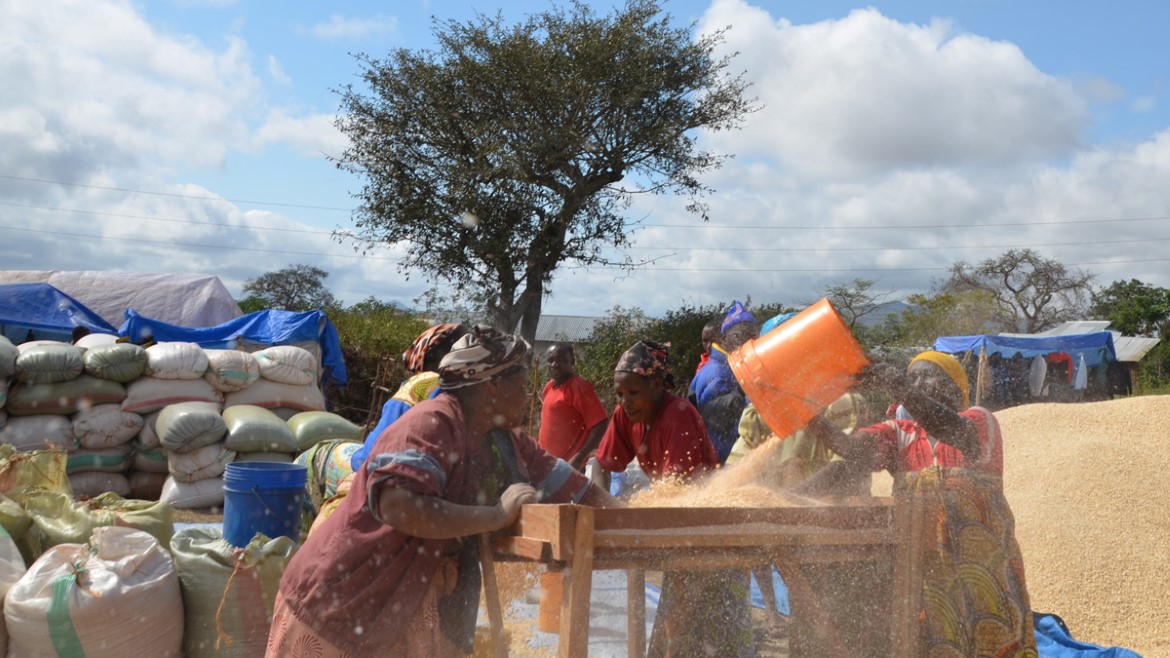
Right to food
‘The right to food’ entails that the authorities must ensure that individuals and their households have access to adequate and safe food. This means improving social welfare schemes, increasing the rate of employment and creating economic growth for the country’s population. It also requires a continued production growth in the agricultural and fisheries sectors.
Food must also reflect the population’s culture and traditions.
The right to food is set out in the UN’s Universal Declaration of Human Rights of 1948, and was repeated in the International Covenant on Economic, Social and Cultural Rights of 1966. Countries that have ratified this covenant must comply with its provisions by incorporating them in the national legal framework or by ensuring that the country’s laws do not infringe the covenant’s provisions.
These countries are thus obliged to respect, protect and fulfil their inhabitants’ right to food.
Central government responsibility
In keeping with human rights, central governments have the responsibility for facilitating access to food for their citizens in three ways:
- The central government must respect the right to food. This means that it must not hinder inhabitants’ ability to feed themselves. For example, it must not annex land belonging to small farmers without giving them compensation.
- The central government has a duty to protect the right to food. If inhabitants are in danger of losing their ability to feed themselves, the government must take action, for example if a landowner annexes the land of small farmers.
- The central government has a duty to fulfil the right to food. This means safeguarding the right to food by facilitating and assisting this. When it comes to fulfilling the right to food, the government must ensure that those who are unable to feed themselves are safeguarded, for example by decisions on land reform. The government also has a duty to help inhabitants who, for various reasons, are unable to acquire enough food themselves. This may be accomplished by means of a social welfare system or other central government schemes.
Voluntary guidelines for the right to food
In 2004 FAO launched its Voluntary guidelines to support the progressive realization of the right to adequate food in the context of national food security. These guidelines, which are based on international law, provide recommendations on how central governments should implement the right to food set out in the International Covenant on Economic, Social and Cultural Rights.
The guidelines provide practical guidance to governments, the private sector and civil society, but it is up to each country to decide how the guidelines are to be followed up.
Norwegian support for work on the right to food
Norway has been a key player in supporting FAO’s work on the right to food. Norwegian assistance has enabled the organization to strengthen national policies regarding this right in a number of countries. FAO has unique competence in this area. Norwegian experts have played a major role in putting in place the agreement structure currently administered by FAO.
The overarching goal of FAO’s human rights-based efforts is to combat hunger, food insecurity and undernutrition in a sustainable manner.
FAO supports member countries and their development partners in their efforts to put in place open and inclusive systems to prevent and combat hunger, food insecurity and undernutrition, including by strengthening legal systems and adopting specific measures to reinforce the central government’s assumption of responsibility for its citizens.
The organization promotes increased development capacity across sectors and the implementation of a legal framework to strengthen the state’s obligations to respect, protect and fulfil human rights.
- Further reading on FAO’s work on the right to food
International cooperation
The FAO Committee on World Food Security (CFS) is the main global political platform for food security, the right to food and nutrition. The committee is a multi-stakeholder platform in the food security area.
The CFS boosts collaboration and enhances the strategic coordination of measures in multilateral organizations at the national level. The committee has prepared voluntary guidelines that cover land rights and fishery resources.
The Global Alliance for Climate Smart Agriculture (GACSA) was initiated and established in 2014. The alliance is a forum for a broad range of stakeholders working for Climate Smart Agriculture (CSA) globally. Guidelines and activities for the development and promotion of a more climate resilient agriculture and food production is discussed.
The GACSA secretariat received Norwegian financial support in 2015. Furthermore, Norway has had one of two co-chairs in the Strategic Committee of GACSA in the initial period of the alliance. FAO is facilitating the GACSA secretariat.
